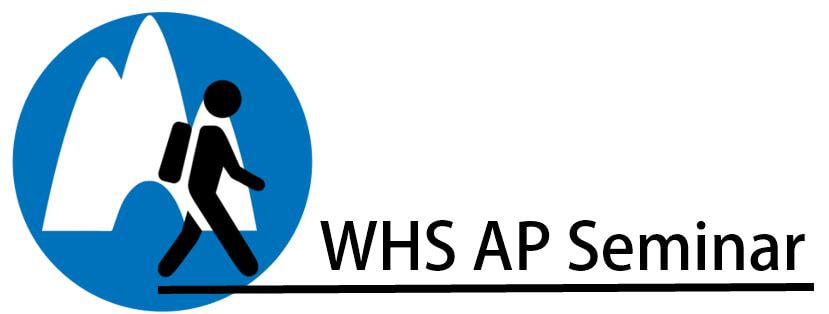|
Sickness does not discriminate. Regardless of wealth or status everyone at one point in their life will experience being sick or getting an injury. However, wealth and status do dictate the likeliness and impact of said injury or sickness. Dhruv Khuller, doctor and researcher at Weill Cornell Department of Healthcare Policy, concurs when he notes that low income people are more likely to have “higher rates of physical limitation and of heart disease, diabetes, stroke, and other chronic conditions, compared to higher-income Americans”( Choksi Khullar, 1). The likeliness of poor health in impoverished communities should facilitate more visits to the hospital or a treatment center, however, the opposite is true. Fewer impoverished people recieve the treatment they deserve, simply because they cannot afford it. Reputable cardiologists from hospitals across the country, Rohan Khera, Javier Valero-Elizondo, and Victor Okunrintemi report from a study of families that contain a person with heart disease that “the mean annual family income was $57 143 (95% CI, $55 377-$58 909), and the mean out-of-pocket expense was $4415” (Khera et. al, 1). The out-of-pocket cost for a family with a single person that has heart disease for a year is just less than a tenth of their income, that may not even suffice to cover basic costs originally. This article also points out that medical emergencies can send a family into a financial crisis (Khera et. al,1). The implication of these findings is that the cost of healthcare is contributing to poverty in America. The contribution to the 40 million people that are impoverished in the US is deplorable (Schaefer et. al, 2). In fact “according to international law…‟every person has the right to an adequate standard of living and where that seems impossible, it is the role of the government to assist them” (Alston, Source 1). The US will be breaking international law if they cannot implement a plan that benefits the health of the people. The government can help to stop the rise in poverty levels attributed the cost of healthcare by providing funded emergency services allowing for a private extended health care option in order to reduce poverty levels, and establish equity. A government funded Medicare plan would help to decrease the poverty levels. Dhruv Khuller agrees and states that “rollbacks of the Affordable Care Act, for example, are likely to worsen both health and income inequalities. Repeal of the individual mandate is predicted to increase the number of uninsured people by four million in 2019 and by thirteen million in 2027. Low-income people have to spend a much greater proportion of their income on health care than more affluent people do”(Khuller et. al.1). The lack of specific governmental aid has made it so that more impoverished Americans are uninsured, which causes them to with pay out of pocket costs for expensive healthcare treatments they need. The government needs to remedy this by implementing a funded insurance plan. A funded insurance plan is an insurance plan targeting low income individuals that is paid for by the government or taxes imposed by the government. However, the idea of having funded Medicare for everyone in the United States has proven to be monumental and extremely expensive. Funding options for a government funded plan were explored by political analyst and Pulitzer finalist Ronald Brownstein. He states that the amount spent would be “34 trillion in additional federal spending over its first decade in operation. That’s more than the federal government’s total cost over the coming decade for Social Security, Medicare, and Medicaid combined, according to the most recent Congressional Budget Office projections” (Brownstein,1). This is a huge cost and seemingly not worth it when there are other options that cost less, because of this the funded plan will have to be very limited in order to be sustainable. The plan cannot be as extensive as Medicare for All, a universal healthcare plan proposed by presidential candidates Bernie Sanders and Elizabeth Warren (Brownstein). The funded plan will exclusively apply to injuries and sickness that is either life threatening or prevents the ability to work. In the long run this will make the government money. The cost for the funded emergency services would be covered by the money already in the budget that is being spent on Medicare. According to a study done “Medicare, Medicaid, the Children’s Health Insurance Program (CHIP), and Affordable Care Act (ACA) marketplace subsidies — together accounted for 26 percent of the budget in 2017, or $1 trillion”(CBPP, 1). There is enough money to sustain the plan that will allow for better health and economy. The funded healthcare plan is a suitable solution for people that are impoverished and need the extra help, but for people that would not be considered low income, a private option should be available. The private option continues to allow people to purchase their own personal insurance (Health Care Service Corporation,1). This option will promote equity or fairness. It will also answer the question, “should the government be allowed to require its citizens to have a pre-planned health care plan?” American ideals are centered around how the people have a choice, so they may not accept a plan that limits the choice. In the eyes of some, the implementation of a funded care system for everyone may even violate some of the rights outlined in the constitution. This may cause the people to look back upon an idea Thomas Jefferson introduced that “every American should have the right to prevent the government from infringing on the liberties of its citizens” (Walker,1). In order to give the people of America the freedom to choose and remain unoppressive, this option is necessary. It allows for private insurance businesses to continue to run and flourish economically. The private option will also make the funded plan more sustainable, considering that medical staff are mostly paid by private insurance companies (Liveclinic,1). The private option is a vital addition to the solution of healthcare and insurance related poverty. The government needs to implement this plan in order to lessen the impact health care and insurance have on poverty. The funded insurance plan is a feasible plan that will benefit low income Americans. The private option given will allow more successful Americans to maintain good health and will give all Americans the choice to have a more direct say in how their health will be taken care of. This solution is one that can and must be integrated into American society. Sources Brownstein, Ronald. “The Eye-Popping Cost of Medicare for All.” The Atlantic, Atlantic Media Company, 16 Oct. 2019, www.theatlantic.com/politics/archive/2019/10/high-cost-warren-and-sanderss-single-payer-plan/600166/. “How Insurance Works.” How Insurance Works | Health Care Service Corporation, www.hcsc.com/understanding-health-insurance/how-insurance-works. Khera, Rohan, et al. “Association of Out-of-Pocket Annual Health Expenditures With Financial Hardship in Low-Income Adults With Atherosclerotic Cardiovascular Disease in the United States.” JAMA Cardiology, American Medical Association, 1 Aug. 2018, www.ncbi.nlm.nih.gov/pmc/articles/PMC6143078/. Khullar, Dhruv. “Health, Income, & Poverty: Where We Are & What Could Help.” Health, Income, & Poverty: Where We Are & What Could Help | Health Affairs, 4 Oct. 2018, www.healthaffairs.org/do/10.1377/hpb20180817.901935/full/. LiveClinic.¨How Do Doctors Get Paid For Healthcare Treatment? ¨Medium,Healthcare in America, 19 June 2018, http://healthcareinamerica.us/how-do-doctors-get-paid-for- healthcare-treatment-f7538b9e59 “New Report: Three Quarters of Those Who Have Lost Jobs and Health Insurance Are Skipping Needed Medicine and Health Care; Many Struggling with Medical Debt.” Commonwealth Fund, 24 Aug. 2011, www.commonwealthfund.org/press-release/2011/new-report-three-quarters-those-who-have-lost-jobs-and-health-insurance-are. “Poverty Facts.” Poverty Solutions, poverty.umich.edu/about/poverty-facts/. “Statement on Visit to the United Kingdom, by Professor Philip Alston, United Nations Special Rapporteur on Extreme Poverty and Human Rights.” OHCHR, www.ohchr.org/EN/NewsEvents/Pages/DisplayNews.aspx?NewsID=23881&LangID=E. Walker, Carol. “Thomas Jefferson.” Thomas Jefferson, www.mtsu.edu/first-amendment/article/1218/thomas-jefferson#targetText=As he did throughout his,should be sacred to everyone.
0 Comments
Your comment will be posted after it is approved.
Leave a Reply. |
WHS StudentsThe Journal of Scholarship at WHS is a peer reviewed journal publishing academic works by emerging scholars at Weymouth Middle and High School. Archives
May 2024
Categories
All
|


 RSS Feed
RSS Feed
